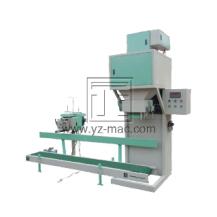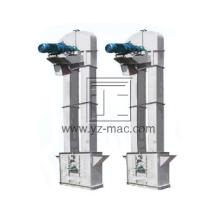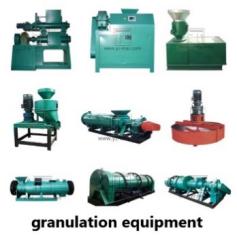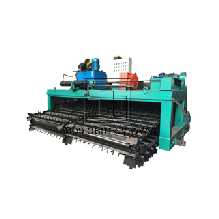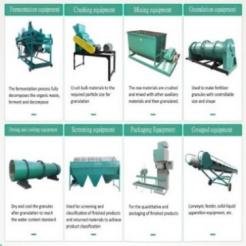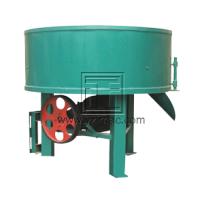Fertilizer granulators
Fertilizer granulators are essential machines in the fertilizer production process that convert raw materials into granular forms. These granulators play a crucial role in improving nutrient management by transforming fertilizers into more convenient, efficient, and controlled-release forms.
Benefits of Fertilizer Granulators:
Improved Nutrient Release: Fertilizer granulators enable the controlled release of nutrients over time. The granular form helps regulate the rate at which nutrients are released into the soil, ensuring that plants receive a consistent and balanced supply of essential elements for optimal growth.
Reduced Nutrient Loss: Granulated fertilizers have lower susceptibility to nutrient loss through leaching, volatilization, or runoff compared to non-granulated forms. The granules provide better retention and absorption by the soil, minimizing environmental impact and maximizing nutrient efficiency.
Ease of Handling and Application: Fertilizer granules are easier to handle, store, transport, and apply compared to powdered or liquid forms. The granular structure provides improved flowability, reduces dustiness, and allows for precise spreading and uniform distribution, ensuring efficient nutrient delivery.
Customization and Formulation: Fertilizer granulators offer flexibility in customizing fertilizer formulations to meet specific crop and soil requirements. Different granulator types allow for the incorporation of additional components, such as micronutrients or organic matter, into the granules, enabling tailored nutrient profiles for optimal plant nutrition.
Types of Fertilizer Granulators:
Rotary Drum Granulator: This type of granulator utilizes a rotating drum to create granules through a combination of rolling, tumbling, and agglomeration processes. It is suitable for a wide range of raw materials and produces uniform, round granules.
Disc Granulator: Disc granulators feature a rotating disc that generates centrifugal force, causing the material to adhere and form granules. They are commonly used for granulating materials with higher moisture content and produce spherical granules.
Pan Granulator: Pan granulators consist of a shallow, rotating pan with high edges. The material is fed into the pan and agglomerates into granules through a combination of spraying, tumbling, and rolling actions. Pan granulators are suitable for a variety of materials and produce uniform, high-quality granules.
Drum Granulator: Drum granulators utilize a cylindrical drum to agglomerate the material into granules. The drum rotates while an internal mechanism sprays a binder or liquid onto the material, resulting in granule formation.
Applications of Fertilizer Granulators:
Agriculture and Crop Production: Fertilizer granulators are widely used in agriculture to produce granular fertilizers tailored to specific crop nutrient requirements. The controlled-release properties of granular fertilizers provide a steady supply of nutrients, minimizing the risk of nutrient imbalances and maximizing crop yields.
Horticulture and Landscaping: Granulated fertilizers are commonly used in horticultural practices, including greenhouse cultivation, nurseries, and landscape management. The ease of handling, precise application, and controlled-release characteristics of granular fertilizers support healthy plant growth and promote sustainable landscape management.
Organic Fertilizer Production: Fertilizer granulators play a vital role in the production of organic fertilizers, allowing the conversion of organic materials into granules. This facilitates the utilization of organic waste streams, improves nutrient availability, and promotes environmentally friendly agricultural practices.
Custom Blends and Specialty Fertilizers: Fertilizer granulators enable the production of custom blends and specialty fertilizers by incorporating additional components into the granules. This versatility allows for the creation of tailored nutrient profiles, micronutrient-enriched granules, or specific formulations to address unique soil and crop requirements.
Fertilizer granulators are key tools in enhancing nutrient management and promoting sustainable agricultural practices. These machines provide numerous benefits, including improved nutrient release, reduced nutrient loss, ease of handling, and customization options. With various types of granulators available, such as rotary drum, disc, pan, and drum granulators, there are options to suit different raw materials and production requirements.



